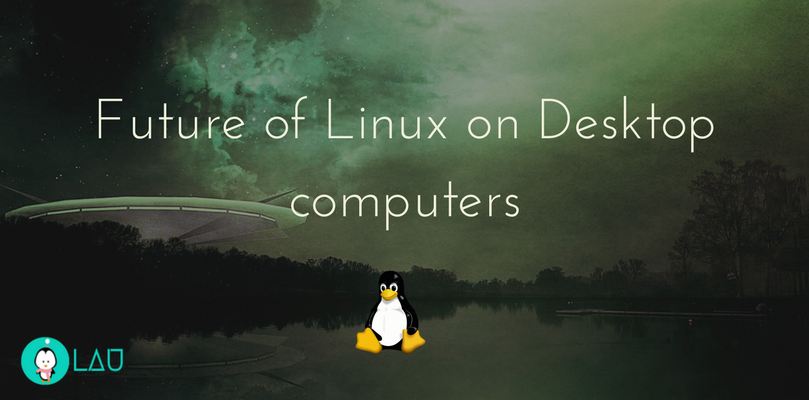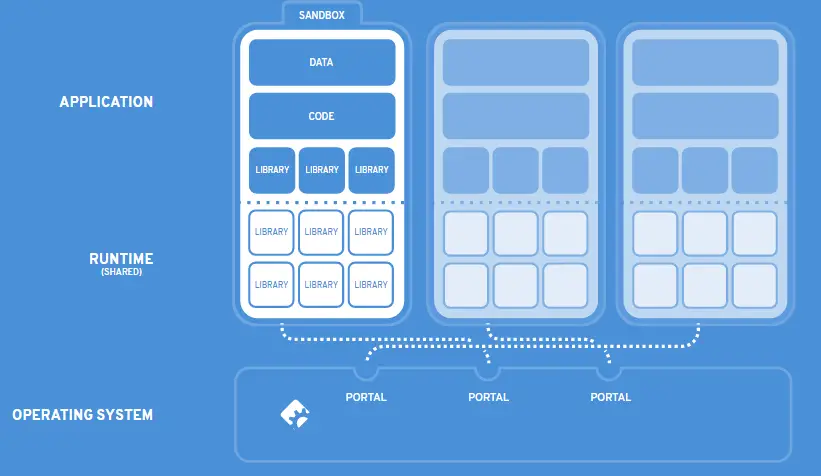
Linux operating systems have dominated all aspects of the computing operating systems but one. From servers to supercomputers and even on mobile and embedded devices with Android, Linux is either the only choice or the most popular amongst them. But when it comes to the desktop, Linux has not been able to dominate although it has become quite an important player in this space. Linux on the desktop continues to gain popularity but how far can it go? Join me as I look at the future of Linux on the desktop.

The future of desktop Linux
I believe this question can be looked at in two different ways. The first being how desktop Linux is going to look in the future. The second question is whether or not it is going to gain much traction than it has enjoyed in the past. Will it gain any decent share of the desktop market or even topple Microsoft Windows? Can it even overtake MacOS? Is the year of the desktop something that is never going to happen?
What will Linux look like on the desktop?
In the early days of desktop Linux, much of the appearance was made to resemble Windows. GNOME, KDE, and the other desktop environments all came with a desktop that consisted of a panel (taskbar) and a Start Menu. Even the applications mimicked Windows I think in an attempt to bring familiarity to the masses. But now things are evolving, Linux desktops are rethinking the desktop experience to improve the user experience. Desktop environments such as Budgie, Pantheon and GNOME 3 are gaining popularity.

Debian with Gnome Desktop And yet still, the traditional DEs such as Cinnamon and MATE are just as popular still. With the growing popularity of mobile operating systems, others have tried and failed in an attempt to bring a mobile experience to the desktop.

Linux Mint with MATE Desktop Canonical’s vision of a unified mobile and desktop experience has been virtually discontinued after some years of pushing. The other major project that tried to bring a mobile experience to the desktop was Jide’s Remix OS which has also been shelved. So what is the future of the Linux desktop in terms of looks? One thing I know is that contrary to popular believe, looks do not matter to most people. Most people just want something intuitive that just works. I love that Linux has so many options but I hope there would be something common for newbies to go to and set the other DEs for intermediates and expert users so that newbies can easily transition into the Linux world.
The future of Linux Apps and Games, Flatpacks, Snaps or a mess?
One of the weaknesses about Linux has been the lack of some rather essential software. This has prevented many people and enterprises from switching to Linux regardless of the benefits that they do bring. Even amongst the Linux community, getting some applications to run on even some popular distros have required some technicalities on the part of the user and this has made Linux not the easiest for new users. Flatpack and Snaps are gaining popularity and hopefully, they would become the first choice of developers in distributing software to Linux users. This next-generation technology for building and installing desktop applications has the power to revolutionize the Linux desktop ecosystem.

Will Linux be a real contender in the desktop space?
Regardless of the growth and popularity of mobile devices, general-purpose desktops are going to be around for the long haul. Yes, not everyone is going to need them as most people just consume content such as browsing, video, and gaming, but I see this as an opportunity for Linux on the desktop. I believe a lightweight distro for content consumption has a good chance of flourishing in the desktop space. With a shift towards the cloud and the continued development of HTML5, a device that can handle this in a simple manner and can still use native applications without the bloat and complexity of current general-purpose operating systems will hit a sweet spot for the next generation computer users.I believe Google’s Chrome OS (Chromium OS) is currently Linux’s best shot at making any significant impact on the desktop space. Google’s Chromebooks are gaining popularity because they are dirt cheap, easy to manage and easier to use and if Linux desktop focused on this segment, there would be a chance of making a great impact.

Conclusion
To wrap up, I don’t know what the future of Linux on the desktop. Maybe there is a chance for Linux to dominate the desktop. If history has shown us anything, it is that nothing lasts forever.
The landscape is changing, maybe the desktop as we know it will shrink into an enterprise need and the mobile and cloud will dominate amongst consumers. Maybe it is going to require a significant development from the Linux community or a major mishap from the current leaders, either way, the Linux desktop is in a good place now with the state of the desktop environments and the direction of applications. Linux on the desktop should aim at the next bend of Chromebook-like systems that are just so easy to use. The battle has been long and hard, and it does not look like it is going to improve anytime soon for Linux, but it can only get better. Even if Linux never rules the general-purpose consumer desktop, it will dominate in the specialist environment. The future of Linux on the desktop is still bright.
